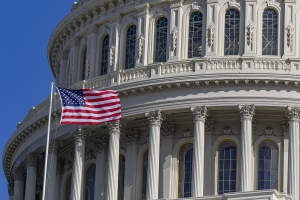'Very Religious' People Have Highest Level of Wellbeing, Gallup Survey Finds
A new Gallup report released Thursday indicates that those who are highly religious have a higher wellbeing rating than those who are moderately religious or nonreligious.
The most recent report in the Gallup poll "Wellbeing" series finds that highly religious individuals have the highest level of wellbeing, even after numerous demographic and geographic variables were controlled.
During the survey, researchers took into account the age, gender, socio-economic status, and where the respondent lived.
They also factored in the variables of marital status and whether or not the individual had children.
In light of these controlled variables, highly religious people scored the highest wellbeing index score of 69.2, while moderately religious people scored a 63.7 and nonreligious people scored a 65.3. Nonreligious people fell in the middle of the wellbeing range.
Researchers conducted 676,000 telephone interviews from January 2010 to December 2011, phoning all 50 states, as well as Washington, D.C.
Each participant was asked two questions, the answers to which pooled them into one of three groups: highly religious people, moderately religious people, and nonreligious people.
Highly religious people, which comprised 41 percent of the adult population, were defined as those who said "religion is an important part of daily life and church/synagogue/mosque attendance occurs at least every week or almost every week."
Moderately religious people made up 28.3 percent of those questioned, and 30.7 percent said they were non-religious.
The study is one part in a multiple part series which compares the total wellbeing of religious and nonreligious people in America.
The series' previous studies have reported that highly religious people overall have better emotional health and physical health.
The study did not identify a precise reason why highly religious people exhibit the highest level of wellbeing. It suggests that perhaps the social networking which accompanies a religious congregation, the amount of time spent meditating, faith in a higher power, and the religious mechanisms for dealing with worry and loss can all reduce stress and promote happiness.
It also suggests that perhaps the conclusion is reversed, and individuals with a higher wellbeing seek religious institutions.
"It is possible that Americans who have higher wellbeing are more likely to choose to be religious than those with lower wellbeing, or that some third variable could be driving certain segments of the U.S. population to be more religious and to have higher wellbeing," the report stated.
Gallup research will continue its survey series, studying further factors that indicate a relationship between wellbeing and religion.





























